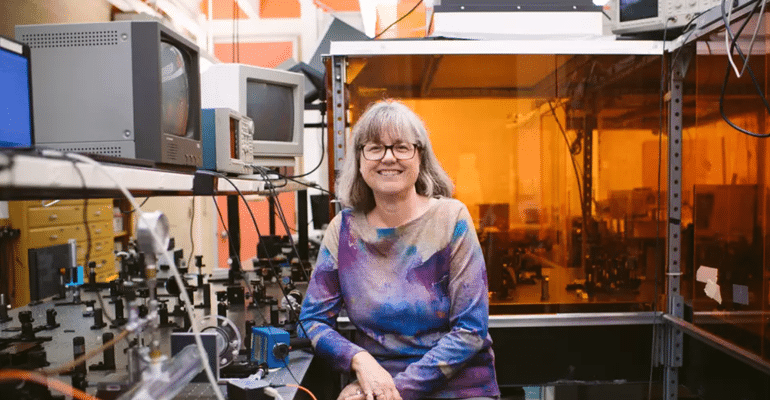On Tuesday, a trio of Canadian, American and French scientists won the 2018 Nobel Prize for Physics. What is interesting is the list includes the first female Physics prize winner in 55 years. The Nobel prize was awarded to these scientists for the breakthroughs in laser technology that have turned light beams into precision tools for everything from eye surgery to micro-machining, mentioned Reuters.
In 1903, Marie Curie and in 1963, Maria Goeppert-Mayer won Nobel of Physics before, which makes Canada’s Donna Strickland, of the University of Waterloo, the third woman to win this prestigious award.

While Arthur Ashkin of Bell Laboratories in the US won half of the 2018 prize for inventing “optical tweezers”, Strickland shares the remainder with Frenchman Gerard Mourou, who also has US citizenship for work on high-intensity lasers.
Shortly after knowing about the prize and while taking part in a news conference over the telephone, Strickland said, “Obviously we need to celebrate women physicists because we are out there and hopefully in time it will start to move forward at a faster rate.”
According to the report, last week, an Italian scientist, Alessandro Strumia was suspended by Europe’s physics research center CERN for making a comment at a seminar at the organization’s Swiss headquarters that physics was “invented and built by men”.
Particularly in Physics, for a very long time, the Nobel prizes were dominated by male scientists. Winning this award makes Strickland, the first woman Nobel laureated in any field.
In 2017, the Royal Swedish Academy of Sciences said that to counter the imbalance, it would look forward to more nominations from women researchers.
Yesterday, professor of theoretical physics at Britain’s University of Surrey, Jim Al-Khalili wrote on Twitter:
How delicious that Canadian laser physicist Donna Strickland shares this year’s Physics #NobelPrize, just days after those ridiculous misogynistic comments made at a conference at CERN about women in physics.
— Jim Al-Khalili (@jimalkhalili) October 2, 2018
Over the years, these three scientists have revolutionized laser physics and their inventions date back to the mid-1980s.
While awarding the nine million Swedish crown prize, which is $1 million, the academy said, “Advanced precision instruments are opening up unexplored areas of research and a multitude of industrial and medical applications.”

